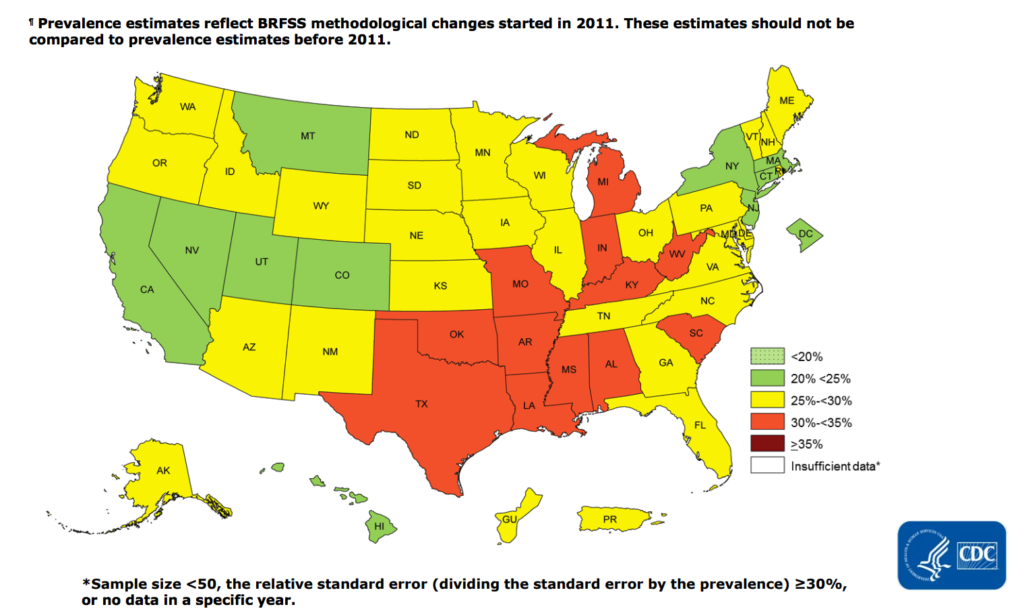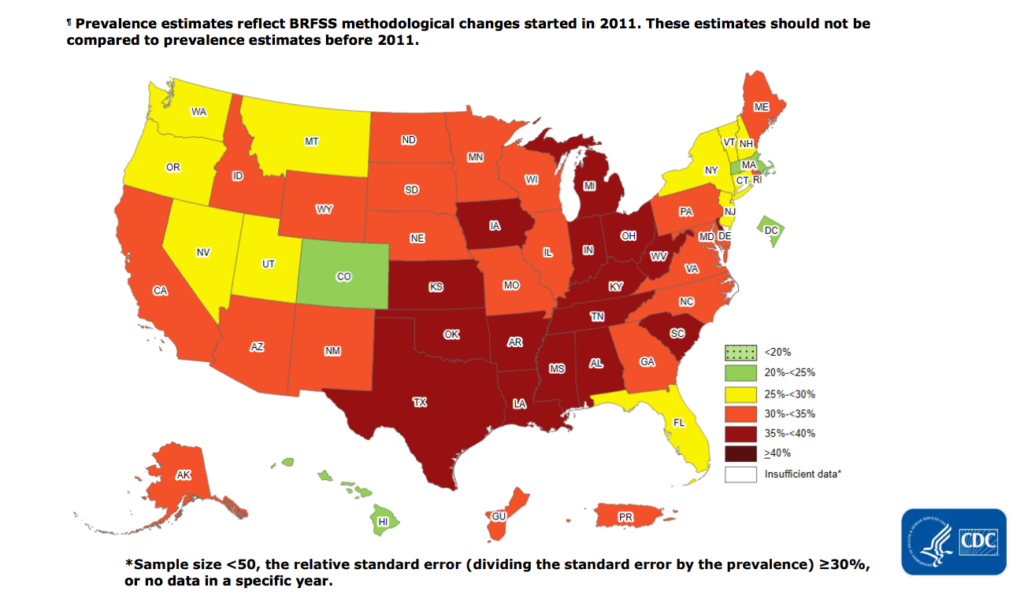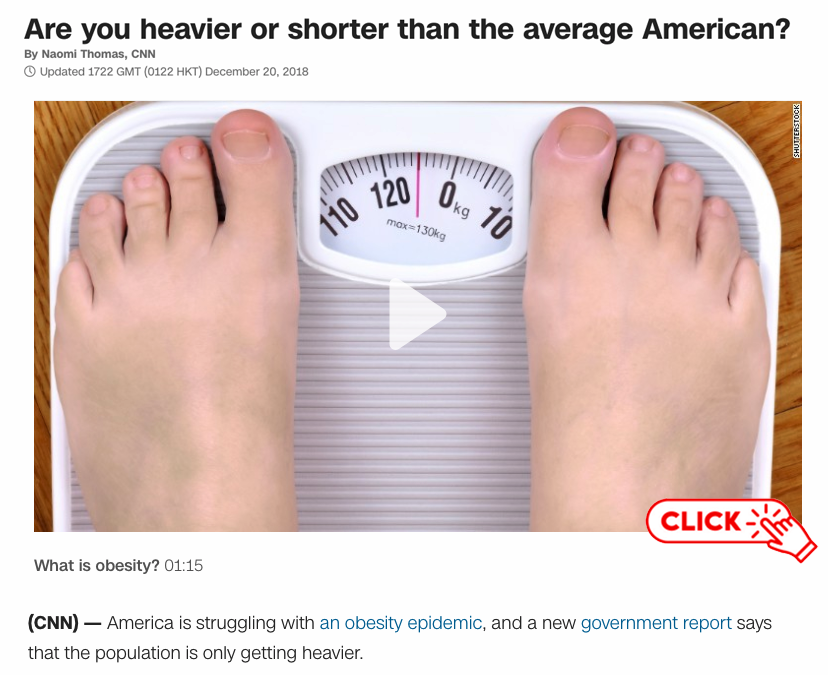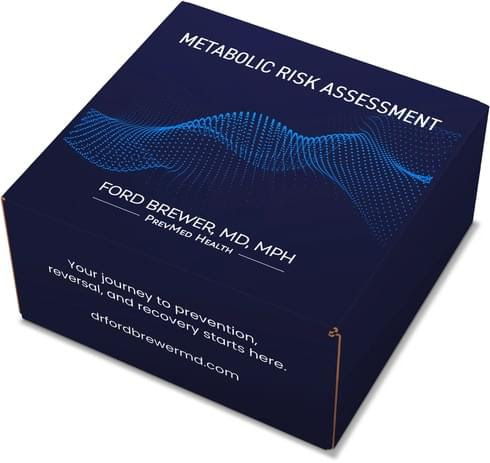In part one, we discussed how one of the biggest dietary mistakes is not which diet you choose but not knowing that you may not metabolize one of the essential macronutrients. We also discussed how eating a lot of glycemic carbohydrates causes inflammation and the damage it causes to the artery walls.
This time, we discussed another big dietary mistake. Outside of smoking and aging, obesity may be the most significant single impact on our health.
Diet is such a considerable debate, and it deserves to be. It’s a huge thing. It’s probably one of the top three priorities in terms of health. I did a video on the potato mono diet. Penn Jillette lost a hundred pounds on it. One of the viewers said, “I can’t believe you talked about that diet”; It is not about the diet itself; if it helped Penn Jillette lose a hundred pounds, I care a lot less about what he ate to get there. He is much healthier at a hundred pounds less.
You might remember Mr. Washington, who used to be the poster child of the New York Times article about how heart attack is coming back; he died at age 49, he didn’t look that heavy, but he was heavy enough to have some issues.
So, are we talking about weight or diet? There is a lot of debate about whether it is better to do paleo, vegan, keto, or other diets and supplements. Meanwhile, we are getting fatter. Below you will find the 2011 CDC’S obesity map; the redder the state, the higher rate of obesity, and below it, the 2020 map, which shows how the obesity rate has increased.


As you can see, I’m linking obesity to dietary mistakes; this comes from my experience as a prevention doctor. I’ve seen thousands of patients and supervised thousands of doctors, internists, family practitioners, ER docs, and others. This is also why the second-biggest dietary mistake is that there is not enough focus on BMI (Body Mass Index) and fat mass.
Here’s an article from CNN. It talks about BMI. It says the average BMI is increasing between 1999- 2000 up to 2015-2016. There was a significant increase in the BMI of your typical adult. The average weight of American men in 2015 was 198 pounds; for women, it was 170.6; This is up from 190 pounds. There is a 10-pound weight gain for men, about 5%, and a 4-pound weight gain for women.
It may sound like that’s not much. I gain 5 pounds all the time. Multiply 5 pounds times how many people are in America, 300 million, that’s a lot of pounds.
Next, this article goes into a lot of detail about BMI; however, BMI doesn’t differentiate muscle from fat mass; in the article, there is no mention of fat mass and its influence on cardiovascular health, so let’s talk about that.
The following concept can explain the problem with accumulating fat mass: “Adipokines Mediate Inflammation and Insulin Resistance.”
What are adipokines? Adipokines are biochemical indicators. They cause cardiovascular inflammation and insulin resistance. Leptin is the most well-known; it is also called the satiety hormone.
The problem with adipokines is their relationship with insulin resistance and inflammation; therefore, It doesn’t matter if you’re on a keto, vegan, or paleo diet; if you are gaining fat, you are gaining adipokines and promoting insulin resistance and cardiovascular inflammation.
There’s a lot of information in science- both popular science and more profound science- about how we get fat and what to do about it. A few authors worth reading on this topic are Gary Taubes, Robert Lustig, David Ludwig, Jason Fung, and Valter Longo.
In conclusion, the biggest dietary mistakes are not related to what diet you prefer but how many macronutrients and body fat you acquire in excess, promoting insulin resistance, inflammation, and increased cardiovascular risk.
If you found this article helpful and want to start taking steps toward reversing your chronic disease, Dr. Brewer and the PrevMed staff are ready to serve you no matter where you’re located.
To find out more, schedule a consult here: prevmedhealth.com
REFERENCES:
- https://www.cdc.gov/obesity/data/maps/2020/overall-2011-2020-508.pdf
- https://edition.cnn.com/2018/12/20/health/us-average-height-weight-report/index.html
- https://prevmedhealth.com/the-3-biggest-diet-mistakes-theyre-not-food-choices-part-1/
- https://prevmedhealth.com/cardiovascular-inflammation-and-plaque-formation/
- https://prevmedhealth.com/is-saturated-fat-unhealthy-is-it-a-big-fat-surprise-big-fat-lies-or-just-confusion/
- https://prevmedhealth.com/prediabetes-a-risk-for-heart-attack-stroke/


